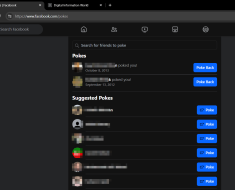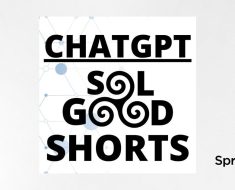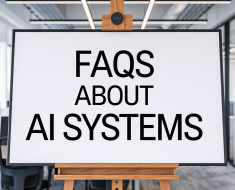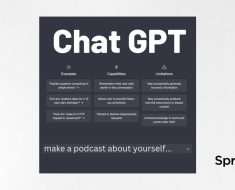
Are you interested in starting a grant writing business?
Great choice!
Grant writing can be a lucrative business that allows you to help organizations secure funding for their projects and initiatives.
But where do you start?
Well, one powerful tool that you can use is ChatGPT, an AI language model developed by OpenAI.
In this post, I’ll walk you through how to leverage ChatGPT to kickstart your grant writing business, and make the process smoother and more efficient.
What is ChatGPT?
Before we dive into the nitty-gritty of using ChatGPT for grant writing, let’s briefly explain what ChatGPT is.
ChatGPT is a state-of-the-art language model powered by artificial intelligence.
It’s designed to generate human-like text and provide coherent responses to a wide range of prompts and questions. It can be a valuable asset for various tasks, including writing, content generation, answering questions, and much more.
Step 1: Understanding Grant Writing
Understanding the fundamentals of grant writing is the first and most critical step when starting a grant writing company. Grant writing is not just about writing persuasive proposals; it’s a complex process that requires a combination of skills, knowledge, and strategies. Here are some key aspects to consider:
1.1. The Purpose of Grant Writing
Grant writing exists to secure funding for various initiatives, projects, or organizations. This funding can come from government agencies, private foundations, corporations, or other sources. Grants can support a wide range of endeavors, from scientific research and educational programs to nonprofit organizations and community development projects.
1.2. The Role of the Grant Writer
As a grant writer, your role is to act as a bridge between your client (the organization seeking funding) and the funding source (the grant-making entity). You are responsible for researching suitable grant opportunities, creating compelling proposals, and ensuring that your client’s proposal aligns with the funder’s objectives and guidelines.
1.3. The Grant Application Process
Grant writing typically involves several stages in the application process, including:
a. Research and Prospect Identification
This phase involves researching potential grant opportunities that match your client’s needs and goals. It includes identifying the right funding sources, understanding their priorities, and evaluating the eligibility criteria.
b. Proposal Development
Once you’ve identified suitable grants, you’ll need to create persuasive proposals. This involves crafting a narrative that clearly articulates the project’s goals, the impact it will have, and why it deserves funding. Effective proposal writing requires a deep understanding of storytelling, project planning, and budgeting.
c. Proposal Submission
Submitting a grant proposal involves adhering to the specific requirements and guidelines of the funding source. This often includes following a prescribed format, submitting all required documents, and meeting submission deadlines.
d. Follow-Up and Reporting
After successfully securing a grant, grant writers are responsible for managing the reporting and follow-up requirements outlined by the funder. This may involve providing regular progress reports, financial statements, and updates on project milestones.
1.4. The Importance of Research Skills
Research is a fundamental aspect of grant writing. It involves scouring various sources to find suitable grant opportunities, understanding the funding organization’s mission and values, and gathering data and evidence to support your proposal’s claims.
Effective research skills are essential to identify the right funding opportunities and tailor your proposals to match their requirements.
1.5. Knowledge of the Grant Landscape
The grant landscape is dynamic and varies by sector, location, and funding source. Understanding the nuances of the grant landscape in your chosen niche is crucial. This includes staying informed about the latest trends, changes in grant-making policies, and emerging funding opportunities.
1.6. Communication and Persuasion
Grant writing is not just about presenting facts and figures; it’s about persuading funders to invest in your client’s project. Effective communication skills, including the ability to convey a compelling narrative and the project’s potential impact, are key to success.
1.7. Attention to Detail
The devil is in the details when it comes to grant writing. Any oversight or error in your proposal could lead to rejection. Paying meticulous attention to every aspect of your proposal, from grammar and formatting to budget accuracy, is essential.
1.8. Ethical Considerations
Grant writers should also be aware of ethical considerations in the field. This includes avoiding conflicts of interest, maintaining transparency in all dealings, and ensuring that the proposed project aligns with the funder’s values and priorities.
1.9. Continuous Learning
Finally, grant writing is an evolving field, and staying up-to-date with industry best practices, new grant opportunities, and changes in regulations is essential. Continuous learning and professional development should be part of your journey as a grant writer.
Understanding grant writing involves grasping the purpose, role, and intricacies of the grant application process. It also requires honing research, communication, and attention-to-detail skills, all while staying informed about the ever-changing grant landscape. By mastering these foundational aspects, you’ll be well-prepared to embark on your journey to start a successful grant writing company with confidence.
Step 2: Identifying Your Niche
Identifying your niche within the grant writing industry is a crucial step in building a successful grant writing company. Rather than trying to be a jack-of-all-trades, focusing on a specific niche allows you to tailor your services, expertise, and marketing efforts to a more targeted audience. Here’s how to go about it:
2.1. Understanding Niche Specialization
Niche specialization means narrowing down your focus to a particular area or sector within the broader field of grant writing. Instead of attempting to cater to every type of grant opportunity, you concentrate your efforts on a specific domain. This offers several advantages:
a. Expertise and Depth of Knowledge
Specializing in a niche enables you to become an expert in that area. You can develop an in-depth understanding of the unique challenges, trends, and opportunities within your chosen sector. This expertise can set you apart from generalist grant writers.
b. Targeted Marketing
With a well-defined niche, your marketing efforts become more effective. You can tailor your messaging and outreach strategies to resonate with organizations or clients in your chosen field. This leads to a higher conversion rate and a more efficient use of resources.
c. Reduced Competition
Specializing in a niche often means facing less competition than in broader markets. While general grant writers may be vying for a wide range of opportunities, you can establish yourself as the go-to expert in your specific niche.
2.2. Choosing Your Niche
Selecting the right niche for your grant writing company is a decision that should align with your interests, skills, and market demand. Here are some steps to guide you in choosing your niche:
a. Self-Assessment
Begin by evaluating your own interests and passions. What areas of grant writing do you find most engaging and fulfilling? Choosing a niche that genuinely interests you will make your work more enjoyable and sustainable.
b. Research Market Demand
Conduct market research to identify where there is a demand for grant writing services. Look for sectors or industries that have a substantial need for grant funding and where your skills and expertise can make a significant impact.
c. Analyze Competition
Examine the competition within potential niches. Determine how saturated each niche is and whether there is room for a new entrant. Competition isn’t necessarily a barrier, but it’s essential to understand what you’re up against.
d. Identify Your Unique Selling Proposition (USP)
Consider what sets you apart from other grant writers in your chosen niche. Your unique skills, experiences, or approach can be your USP. Highlighting what makes you different can attract clients looking for specialized expertise.
e. Consider Passion and Purpose
While financial viability is crucial, don’t underestimate the power of passion and purpose. Choosing a niche that aligns with your values and allows you to contribute to causes you care about can be incredibly rewarding.
2.3. Examples of Grant Writing Niches
Here are some examples of niches within the grant writing industry:
a. Educational Grants
Specializing in educational grants can involve working with schools, colleges, or educational nonprofits to secure funding for programs, scholarships, or facility improvements.
b. Healthcare Grants
Focusing on healthcare grants may mean assisting hospitals, clinics, or healthcare nonprofits in obtaining funding for medical research, patient care initiatives, or community health programs.
c. Environmental Grants
In this niche, you could work with environmental organizations to secure funding for conservation projects, sustainability initiatives, or climate change research.
d. Nonprofit Grants
Concentrating on nonprofit grants could involve helping a wide range of nonprofit organizations secure funding for their missions, whether it’s related to arts and culture, social services, or community development.
e. Technology and Innovation Grants
Specializing in technology and innovation grants can involve working with startups, research institutions, or tech-focused nonprofits to secure funding for cutting-edge projects and research.
f. Arts and Culture Grants
This niche focuses on helping arts and cultural organizations secure funding for exhibitions, performances, and programs that enrich communities through the arts.
2.4. Crafting Your Niche Statement
Once you’ve chosen your niche, create a clear and concise niche statement that defines your specialization. This statement should communicate your expertise and the specific types of grant writing services you offer within your niche. It can be used on your website, marketing materials, and in client communications to establish your brand identity.
2.5. Continuously Evolve
Your chosen niche is not set in stone forever. As your business grows and market conditions change, you may find opportunities to expand or refine your niche. Be open to evolution and adapt your focus as needed to stay relevant and competitive in the grant writing industry.
Identifying your niche is a pivotal step in building a successful grant writing company. It involves a thoughtful assessment of your interests, market demand, competition, and unique selling proposition. Specializing in a niche allows you to stand out, target your marketing efforts effectively, and establish yourself as an expert in your chosen field, ultimately leading to the success and growth of your grant writing business.
Step 3: Creating Your Business Plan
With your niche in mind, it’s time to create a comprehensive business plan for your grant writing company. This plan should outline your business goals, target market, pricing structure, marketing strategies, and financial projections.
Having a well-thought-out plan will not only guide your business but also help you secure investors or loans if needed.
Step 4: Leveraging ChatGPT for Research
Now, let’s get to the heart of how ChatGPT can be a game-changer for your grant writing company. One of the most time-consuming aspects of grant writing is research. You need to gather information about potential grant opportunities, the organizations offering them, and the specific requirements for each grant.
ChatGPT can help streamline your research process by:
- Generating Grant Proposals: You can use ChatGPT to create the initial drafts of grant proposals. By providing basic information about your project and organization, ChatGPT can generate compelling proposal templates for you to build upon.
- Identifying Relevant Grants: ChatGPT can help you find relevant grant opportunities by parsing through vast amounts of text and summarizing key details about grants that match your criteria.
- Answering Questions: If you have questions about specific grant guidelines or eligibility criteria, ChatGPT can provide quick and accurate answers, saving you the time it would take to dig through lengthy documents.
- Creating Grant Reports: After securing a grant, you’ll need to provide progress reports. ChatGPT can assist in generating these reports by summarizing project updates and achievements in a coherent and professional manner.
Step 5: Tailoring Your Proposals
While ChatGPT can help you generate the initial drafts of grant proposals, it’s essential to remember that these drafts should be customized and tailored to each specific grant opportunity. No two grants are alike, and funders have unique requirements and priorities.
Use ChatGPT’s generated content as a starting point, but invest time in personalizing and fine-tuning your proposals to align with the specific goals and objectives of the grant you’re applying for. Ensure that your proposals are persuasive, clear, and showcase the impact your project will have.
Step 6: Editing and Proofreading
Before submitting your grant proposals, it’s crucial to thoroughly edit and proofread them. While ChatGPT can generate content, it’s essential to review and refine the text to eliminate any grammatical errors, improve clarity, and ensure consistency.
You can use proofreading tools and consult with professional editors if needed.
Step 7: Building Relationships
Building relationships with grant-making organizations and funders is a critical aspect of grant writing. While ChatGPT can assist with the initial stages of proposal creation, the personal touch and relationship-building should come from you. Attend networking events, participate in conferences, and engage with potential funders to establish trust and credibility.
Step 8: Marketing Your Services
To attract clients to your grant writing company, you need to effectively market your services. Create a professional website, showcase your expertise, and provide case studies or success stories from previous clients.
Use social media, content marketing, and email campaigns to reach potential clients in your niche.
Step 9: Staying Updated
The grant landscape is continually evolving, with new opportunities and changes in regulations. Stay updated with the latest trends, funding sources, and grant-writing best practices.
ChatGPT can help by summarizing relevant news articles, reports, and updates in the field of grant writing.
Step 10: Managing Your Business
As your grant writing company grows, you’ll need to manage various aspects of your business, including finances, client relationships, and project timelines. Consider using project management tools and accounting software to keep everything organized and running smoothly.
Conclusion
Starting a grant writing business can be a fulfilling and profitable venture, and ChatGPT can be an invaluable tool to assist you along the way.
By using ChatGPT for research, proposal drafting, and staying updated, you can save time and increase the efficiency of your grant writing process.
However, remember that while ChatGPT can automate certain tasks, the success of your grant writing business ultimately depends on your expertise, communication skills, and dedication to building relationships with funders.
Use ChatGPT as a supportive tool, but don’t underestimate the power of human connection and personalization in the world of grant writing.
So, are you ready to embark on your journey to start a grant writing company with ChatGPT by your side?
With dedication and the right tools, you can make a significant impact in the world of grant writing and help organizations achieve their goals.
Good luck on your entrepreneurial journey!





